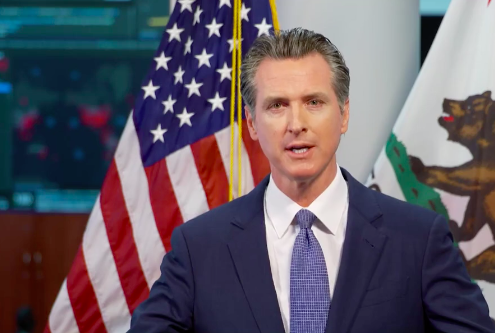 https://charityoneinsurance.com/wp-content/uploads/2023/04/imgpsh_fullsize_anim-4-scaled.jpg
2110
2560
Charity One Admin
https://charityoneinsurance.com/wp-content/uploads/2023/04/logo-2.png
Charity One Admin2023-04-28 11:01:312023-04-28 11:55:22Risks Faced by Nonprofit Organizations & How a Nonprofit Insurance Can Help?
https://charityoneinsurance.com/wp-content/uploads/2023/04/imgpsh_fullsize_anim-4-scaled.jpg
2110
2560
Charity One Admin
https://charityoneinsurance.com/wp-content/uploads/2023/04/logo-2.png
Charity One Admin2023-04-28 11:01:312023-04-28 11:55:22Risks Faced by Nonprofit Organizations & How a Nonprofit Insurance Can Help?What Is Directors and Officers (D&O) Liability Insurance for Nonprofits?
Directors and Officers (D&O) liability insurance for nonprofits provides coverage for the personal liability of directors and officers of nonprofit organizations.
This insurance protects directors and officers from financial damages resulting from lawsuits brought against them by employees, volunteers, members, donors, or other stakeholders alleging wrongful acts, errors, omissions, or duty breaches committed during their duties.
D&O liability insurance can also cover the organization itself for certain types of claims, such as employment practices liability or discrimination. It is important to note that D&O liability insurance does not cover criminal acts or intentional misconduct.
How Exactly Does a Directors and Officers (D&O) Liability Insurance Work for Nonprofits?
Directors and Officers (D&O) liability insurance provides financial protection to nonprofit board members, officers, and directors if they are sued personally for alleged wrongful acts or omissions in their capacity as organization leaders. D&O insurance typically covers the cost of legal defense fees, settlements, and judgments resulting from covered claims.
It’s important to note that D&O insurance does not cover intentional acts of fraud or criminal activity and typically has exclusions for certain types of claims, such as bodily injury or property damage. The coverage protects individuals from personal financial liability and can be essential for attracting and retaining high-quality leaders for nonprofit organizations.
To claim under a D&O policy, a covered individual must be named in a lawsuit or other legal proceeding related to their role as a nonprofit organization leader. The policy will typically provide coverage up to a specified limit, which can vary depending on the size of the organization and the scope of its operations.
Why Is Directors and Officers (D&O) Liability Insurance Important for Nonprofits?
Directors and Officers (D&O) Liability Insurance is vital for nonprofits because it protects the organization’s board of directors and officers against legal claims arising from their actions or decisions made on behalf of the nonprofit. The nonprofit board members and officers are exposed to various liability risks, such as fiduciary duty breaches, funds mismanagement, and judgment errors. These risks can result in costly legal actions, which can drain the organization’s resources and damage its reputation.
D&O insurance can help protect the personal assets of nonprofit board members and officers in the event of a lawsuit, covering legal expenses and potential damages. It also provides a layer of protection for the nonprofit, helping preserve its financial stability and reputation. By mitigating the financial risks and legal consequences associated with board service, D&O insurance can help attract and retain qualified individuals to serve on the nonprofit’s board. It can help the organization fulfill its mission and goals more effectively.
What Is Covered Under Directors and Officers (D&O) Liability Insurance for Nonprofits?
Directors and Officers (D&O) Liability Insurance for nonprofits typically covers claims made against directors, officers, and other key employees of the organization for alleged wrongful acts or omissions committed while carrying out their duties for the organization.
These wrongful acts or omissions may include but are not limited to financial mismanagement, breach of fiduciary duty, conflicts of interest, negligence, and other violations of law or regulations.
D&O insurance policies can cover the costs of legal defense and settlement or judgment payments arising from such claims. The coverage may also include protection for the organization itself in certain situations where it may be held liable for the actions of its directors and officers.
It is important to note that D&O insurance policies may have specific exclusions or limitations, so it is essential to carefully review the policy terms to understand what is covered and what is not.
What Are the Benefits of Directors and Officers (D&O) Liability Insurance for Nonprofits?
Directors and Officers (D&O) Liability Insurance provides several benefits to nonprofits. Some of the benefits are:
1. Protecting the Personal Assets of Directors and Officers
D&O insurance helps protect the personal assets of directors and officers in case of a lawsuit against them. It covers legal defense costs, settlements, and judgments in case of allegations of wrongful acts, errors, omissions, or duty breaches by directors & officers.
2. Attracting and Retaining High-Quality Board Members
Having D&O insurance shows potential and current board members that the organization is committed to protecting their interests and safeguarding their assets. It can help the nonprofit attract and retain high-quality board members.
3. Maintaining Financial Stability
Legal defense costs and settlements resulting from a lawsuit can be expensive and significantly strain a nonprofit. D&O insurance can help maintain the organization’s financial stability by covering these costs and avoiding financial crises.
4. Preserving the Reputation of the Nonprofit
A lawsuit against a nonprofit and its directors and officers can damage its reputation. D&O insurance can help mitigate the damage by covering public relations costs and crisis management.
5. Encouraging Transparency and Accountability
Having D&O insurance in place can encourage transparency and accountability within the nonprofit. Directors and officers may feel more comfortable making difficult decisions if they know they are protected from personal liability in case of legal action. It can lead to more open and honest discussions and decision-making processes.
Which Nonprofits Need Directors and Officers (D&O) Liability Insurance?
All Nonprofits should secure Directors & Officers Liability to protect the Board Members from personal liability. The following list are examples of the types of Nonprofits that should secure coverage to protect the board members; but are not limited to these types of organizations:
- Health and human services organizations (such as hospitals, clinics, nursing homes, and social service organizations)
- Education institutions (such as schools, colleges, and universities)
- Environmental and conservation organizations
- Community development organizations (such as housing and economic development organizations)
- Social advocacy and civil rights organizations
- Charitable organizations that provide direct services to people in need (such as food banks and homeless shelters)
- Foundations and grantmaking organizations
- Research and scientific organizations
- Trade and professional associations
- International and global organizations
- Disaster relief and emergency response organizations
- Public broadcasting and media organizations
- Veteran and military organizations
- LGBTQ+ and other social justice organizations
- Public safety and crime prevention organizations
Charity One Insurance provides nonprofit insurance services to various nonprofits and social service organizations. If you are looking for directors & officers liability insurance for your nonprofit or social service organization, contact us now.
What Is the Cost of Directors and Officers (D&O) Liability Insurance for Nonprofits?
The cost of Directors and Officers (D&O) liability insurance for nonprofits can vary depending on various factors.
In general, D&O insurance premiums for nonprofits are based on a percentage of the total coverage amount, with the percentage varying based on the level of risk associated with the organization. Nonprofits with higher levels of risk may pay higher premiums than those with lower risk.
Other factors affecting the cost of D&O insurance for nonprofits include the type of coverage selected, the deductible amount, and any additional endorsements or riders added to the policy. Nonprofits must shop around and compare quotes from different insurance providers to ensure they get the best coverage at the most affordable price.
The cost of D & O insurance for nonprofits is much lower than the potential cost of a lawsuit or settlement without insurance coverage. In other words, while the insurance cost may vary, it can provide significant financial protection for the organization and its directors and officers in case of a legal claim or lawsuit.
How To Get Directors and Officers (D&O) Liability Insurance If You Are a Nonprofit?
Here are the steps you can take to get D&O liability insurance if you are a nonprofit:
1. Identify your insurance needs
Determine the level of coverage you need based on your organization’s size, operations, and potential risks.
2. Research insurance providers
Look for insurance providers specializing in nonprofit coverage and have experience with D&O liability insurance.
3. Obtain multiple quotes
Get quotes from different insurance providers to compare coverage options and costs. An Insurance Broker with proper market access will be able to provide you with multiple quotes from various insurance companies with one call.
4. Review policy terms
Carefully review the policy terms and conditions to ensure the coverage meets your organization’s needs.
5. Consult with an insurance broker or attorney
It is important to consult with an insurance broker or an attorney specializing in nonprofit insurance to help you understand the policy and ensure you get the coverage you need.
6. Purchase the policy
Once you have identified the right policy and insurance provider, you can purchase the policy and begin your coverage. It is important to note that obtaining D & O liability insurance for nonprofits can be complex, however, it is essential to protect your organization’s directors and officers from potential legal and financial risks.
Legal And Organizational Requirements for Nonprofits to Carry Directors and Officers (D&O) Liability Insurance
Directors and Officers (D&O) liability insurance is not legally required for nonprofits. Still, protecting the organization, its leaders, and their personal assets from potential lawsuits and claims is highly recommended.
That being said, some organizational requirements may exist depending on the state and the type of nonprofit. For example, some states may require the board of directors to carry D&O insurance as part of their fiduciary duty to act in the organization’s best interest. Additionally, some grantmaking organizations or foundations may require nonprofits to have D&O insurance as a condition for funding.
In terms of organizational requirements, nonprofits should include a provision in their bylaws that outlines the organization’s intent to carry D&O insurance and specifies the type of coverage and limits that will be maintained. The board of directors should also review and approve the insurance policy annually to ensure that it is adequate and appropriate for the organization’s needs.
It is always recommended that nonprofits consult with a qualified insurance professional or attorney to ensure they meet all legal and organizational requirements for carrying D&O insurance.
Factors To Consider When Choosing a Directors and Officers (D&O) Liability Insurance Agency
When choosing a Directors and Officers (D&O) liability insurance agency for your nonprofit, there are several factors to consider. Here are some important ones:
1. Experience and Reputation
Look for an insurance agency with experience in providing D&O liability insurance for nonprofits. Check their reputation by researching their client reviews, ratings, and testimonials.
2. Customized Policies
Nonprofits have unique needs, so choosing an insurance agency that offers customized policies is essential. Ensure that the policy covers the specific risks your nonprofit faces.
3. Financial Strength
Choose an insurance agency with a solid financial rating. You want to ensure the insurance company can pay claims if needed.
4. Claims Handling
Look for an insurance agency with a reputation for handling claims fairly, efficiently, and effectively. Check the agency’s claim process and time frames for resolution.
5. Cost
Compare insurance quotes from several agencies to ensure you get the best premium value.
6. Customer Service
Choose an insurance agency offering excellent customer service, clear communication, and responsive support.
7. Additional Services
Consider whether the insurance agency provides additional services, such as risk management and loss control advice, to help reduce the likelihood of claims in the first place.
Get a Quote for Directors and Officers (D&O) Liability Insurance from Charity One Insurance
Getting comprehensive and affordable directors and officers (D&O) liability insurance for your nonprofit or social service organization can be complex.
However, Charity One Insurance is always at your service to simplify things so you can save time and energy to serve the community.
Our experienced team understands nonprofit organizations’ unique risks and can provide you with the coverage you need to protect your organization from claims and lawsuits.
Getting a quote for directors and officers (D&O) liability insurance from Charity One Insurance is easy. Simply fill out our online quote request form or give us a call to speak with one of our knowledgeable agents.
We’ll work with you to assess your organization’s needs and provide a customized quote that fits your budget.
Other Insurances That Nonprofits Should Buy
Apart from directors and officers (D&O) liability insurance, nonprofits should consider a more comprehensive insurance program to protect the organization. The following is a list of coverage that may be required or should be considered:
- Professional Liability/Errors & Omissions (E&O) Insurance
- Property Insurance
- Workers’ Compensation Insurance
- Employment Practices Liability (EPLI) Insurance
- Misc Improper Sexual Conduct/ Abuse Coverage
- Product Liability Insurance
- General Liability Insurance
- Commercial Auto Insurance
- Crime Coverage Insurance
- Cyber Liability Insurance
The above coverage does not include all available coverage that may be needed to protect the organization’s finances; however, it does represent the most common coverages.
Charity One Insurance’s Stats
Testimonials
FAQs
What is nonprofit insurance?
Nonprofit insurance is a type of insurance coverage designed to protect nonprofit organizations from financial losses resulting from unforeseen events, such as property damage, theft, lawsuits, and employee injuries.
What are nonprofit liabilities?
Nonprofit liabilities are potential legal obligations or financial responsibilities that a nonprofit organization may face, such as lawsuits, property damage claims, employee injuries, and other unexpected events. Nonprofit organizations can protect themselves from these liabilities with insurance coverage, such as general liability, professional liability, and workers’ compensation insurance.
What are the features of D&O Insurance for nonprofits?
D&O insurance covers legal costs and damages related to claims against nonprofit directors and officers for alleged wrongful acts, errors, or omissions.
How does D&O insurance protect decision-makers of a nonprofit organization?
D&O insurance protects directors and officers from personal financial loss in case they are sued for alleged wrongful acts, errors, or omissions while performing their duties for the nonprofit.
How does D&O insurance help your nonprofit attract talent?
D&O insurance signals to prospective directors and officers that your nonprofit is committed to protecting them in case of legal action.
What mismanagement allegations can directors & officers of a nonprofit organization face, and can D&O Insurance help?
Directors and officers can face various mismanagement allegations, such as breach of fiduciary duty, misrepresentation, or discrimination. D&O insurance can help cover the legal defense costs and damages.
What issues increase the risk of a D&O Claim against directors & officers of a nonprofit organization?
Issues that increase the risk of a D&O claim against directors and officers include inadequate or inconsistent governance policies, conflicts of interest, financial instability, and lack of diversity and inclusion.
Is immunity offered to directors & officers under Volunteer Protection Act?
While Volunteer Protection Act provides limited immunity for volunteers and nonprofit organizations, it does not offer immunity to directors and officers in case of alleged wrongful acts or mismanagement.
Who is covered under D&O liability insurance for nonprofits?
D&O liability insurance covers directors, officers, trustees, employees, and volunteers who are acting in their official capacity for the nonprofit organization.
How much D&O liability insurance coverage does our nonprofit need?
The amount of D&O liability insurance coverage needed by a nonprofit depends on the organization’s size, the nature of its activities, and the potential risks involved. It is advisable to consult with an insurance agent or broker to determine the appropriate coverage.
What are some standard exclusions or limitations in D&O liability insurance for nonprofits?
Standard exclusions or limitations in D&O liability insurance for nonprofits include intentional wrongdoing, criminal acts, bodily injury or property damage claims, and prior acts or known claims.
Can we bundle D&O liability insurance with other insurance coverage for our nonprofit?
Yes, many insurance companies offer packages that combine D&O liability insurance with other types of coverage, such as general liability, property, and employment practices liability insurance.
What is the claims process like for D&O liability insurance, and how long does it typically take to receive a payout?
The claims process for D&O liability insurance involves reporting the claim to the insurer, providing documentation and evidence, and working with the insurer to resolve the claim. The length of time to receive a payout varies depending on the complexity of the claim.
How can we reduce the risk of a D&O liability claim at our nonprofit organization?
Nonprofits can reduce the risk of a D&O liability claim by establishing clear governance policies and procedures, providing regular training and education for directors and officers, conducting thorough background checks, maintaining proper financial records, and fostering a culture of transparency and accountability.
[caldera_form id=”CF5a063b59a816c”]












